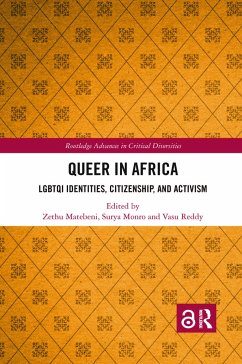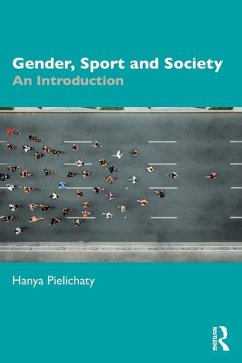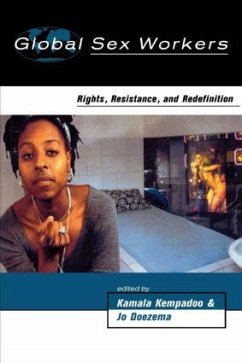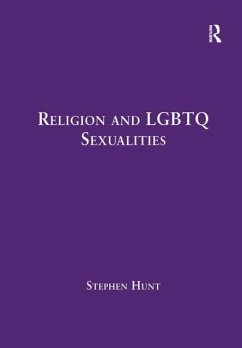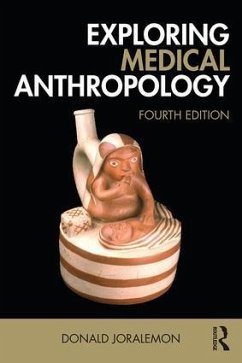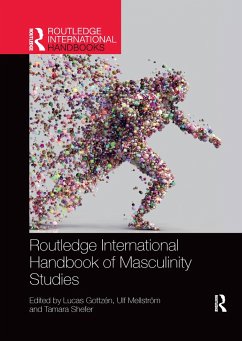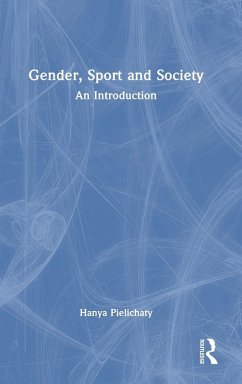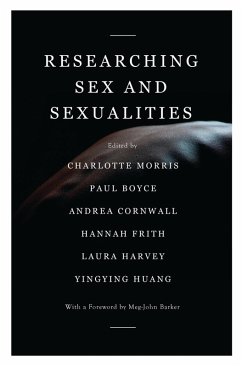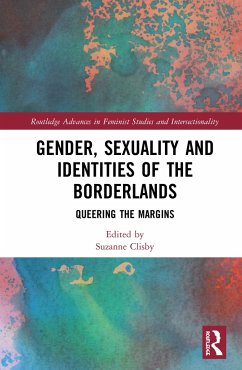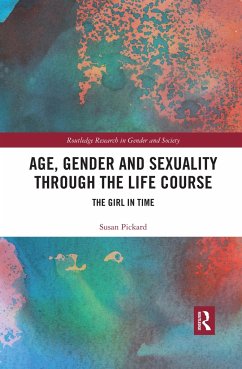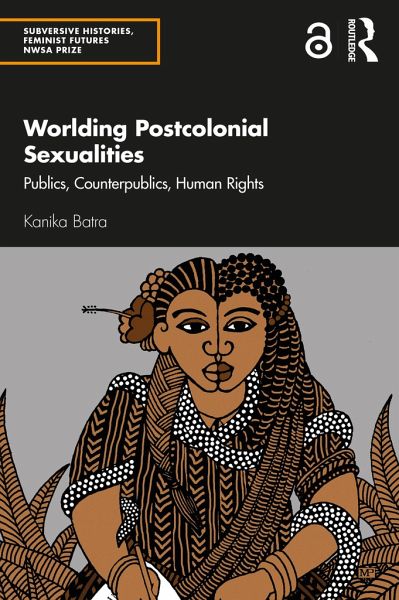
Worlding Postcolonial Sexualities
Publics, Counterpublics, Human Rights
Versandkostenfrei!
Versandfertig in 6-10 Tagen
42,99 €
inkl. MwSt.
Weitere Ausgaben:

PAYBACK Punkte
21 °P sammeln!
Worlding Postcolonial Sexualities demonstrates how late twentieth century postcolonial print cultures initiated a public discourse on sexual activism and contends that postcolonial feminist and queer archives offer alternative histories of sexual precarity, vulnerability, and resistance.The book's comparative focus on India, Jamaica, and South Africa extends the valences of postcolonial feminist and queer studies towards a historical examination of South-South interactions in the theory and praxis of sexual rights. Analyzing the circumstances of production and the contents of English-language ...
Worlding Postcolonial Sexualities demonstrates how late twentieth century postcolonial print cultures initiated a public discourse on sexual activism and contends that postcolonial feminist and queer archives offer alternative histories of sexual precarity, vulnerability, and resistance.
The book's comparative focus on India, Jamaica, and South Africa extends the valences of postcolonial feminist and queer studies towards a historical examination of South-South interactions in the theory and praxis of sexual rights. Analyzing the circumstances of production and the contents of English-language and intermittently bilingual magazines and newsletters published between the late 1970s and the late 1990s, these sources offer a way to examine the convergences and divergences between postcolonial feminist, gay, and lesbian activism. It charts a set of concerns common to feminist, gay, and lesbian activist literature: retrogressive colonial-era legislation impacting thestatus of women and sexual minorities; a marked increase in sexual violence; piecemeal reproductive freedoms and sexual choice under neoliberalism; the emergence and management of the HIV/AIDS crisis; precariousness of lesbian and transgender concerns within feminist and LGBTQ+ movements; and Non-Governmental Organizations as major actors articulating sexual rights as human rights. This methodologically innovative work is based on archival historical research, analyses of national and international policy documents, close readings of activist publications, and conversations with activists and founding editors.
This is an important intervention in the field of gender and sexuality studies and is the winner of the 2020 Feminist Futures, Subversive Histories prize in partnership with the NWSA. The book is key reading for scholars and students in gender, sexuality, comparative literature, and postcolonial studies.
Chapter 3 of this book is freely available as a downloadable Open Access PDF at http://www.taylorfrancis.com under a Creative Commons Attribution-Non Commercial-No Derivatives (CC-BY-NC-ND) 4.0 license.
The book's comparative focus on India, Jamaica, and South Africa extends the valences of postcolonial feminist and queer studies towards a historical examination of South-South interactions in the theory and praxis of sexual rights. Analyzing the circumstances of production and the contents of English-language and intermittently bilingual magazines and newsletters published between the late 1970s and the late 1990s, these sources offer a way to examine the convergences and divergences between postcolonial feminist, gay, and lesbian activism. It charts a set of concerns common to feminist, gay, and lesbian activist literature: retrogressive colonial-era legislation impacting thestatus of women and sexual minorities; a marked increase in sexual violence; piecemeal reproductive freedoms and sexual choice under neoliberalism; the emergence and management of the HIV/AIDS crisis; precariousness of lesbian and transgender concerns within feminist and LGBTQ+ movements; and Non-Governmental Organizations as major actors articulating sexual rights as human rights. This methodologically innovative work is based on archival historical research, analyses of national and international policy documents, close readings of activist publications, and conversations with activists and founding editors.
This is an important intervention in the field of gender and sexuality studies and is the winner of the 2020 Feminist Futures, Subversive Histories prize in partnership with the NWSA. The book is key reading for scholars and students in gender, sexuality, comparative literature, and postcolonial studies.
Chapter 3 of this book is freely available as a downloadable Open Access PDF at http://www.taylorfrancis.com under a Creative Commons Attribution-Non Commercial-No Derivatives (CC-BY-NC-ND) 4.0 license.





